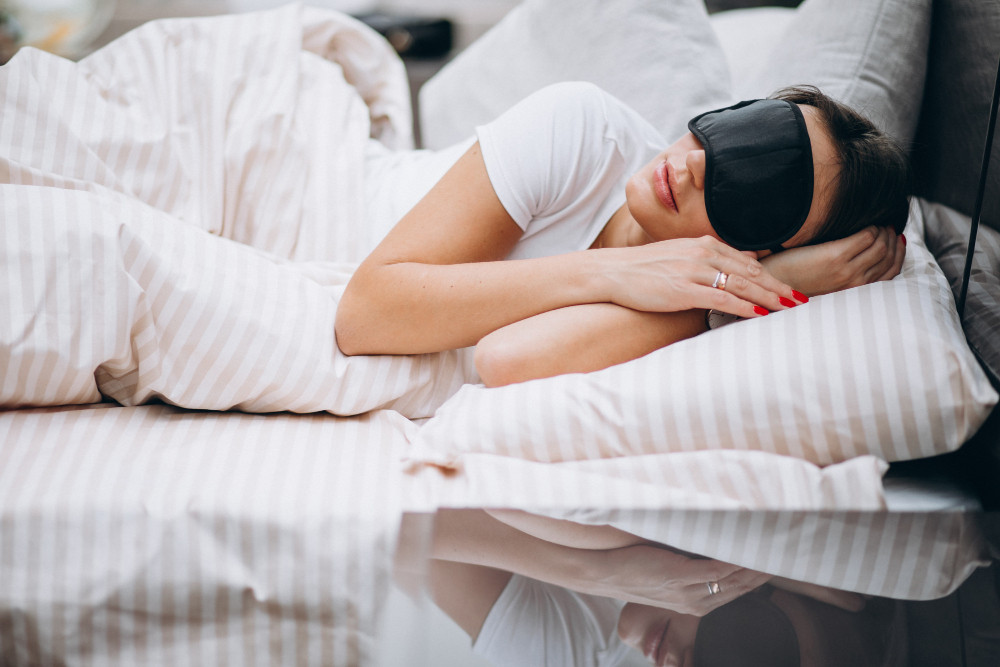Antihistamines are medications commonly used to treat allergies, motion sickness, and digestive issues. Some types of antihistamines can induce drowsiness, leading people to use them for sleep problems. But is this approach safe? Let’s explore this question in the following article.
Antihistamines as Sleep Aids
Antihistamines are drugs that help alleviate allergy symptoms such as nasal congestion, itchy eyes or nose, watery eyes, and other related issues. These medications are also effective in preventing and treating nausea, vomiting, and dizziness caused by motion sickness.
Certain antihistamine drugs, like diphenhydramine and doxylamine succinate, are used as sleep aids. These medications work by blocking histamine, a compound released by the body when exposed to allergens, which is responsible for triggering allergic reactions. Some antihistamines can also block histamine production in the brain.
The body’s sleep-wake cycle is regulated by chemicals in the brain. When preparing for sleep, histamine levels naturally decrease in the brain, initiating the process of falling asleep, starting with light sleep (NREM) or early stages of deep sleep.
When you take antihistamines such as diphenhydramine or doxylamine succinate, the effects of these drugs replicate the body’s natural sleep processes, making you feel drowsy.
According to the U.S. Food and Drug Administration (FDA), both of these compounds can be used to treat sleep issues, but they should be taken under medical supervision. Some studies suggest caution, as the side effects of these medications may impact daily activities.
Is It Safe to Take Antihistamines Every Day as Sleeping Pills?
While diphenhydramine may help with short-term insomnia, experts advise against using it every day. The drug loses effectiveness with frequent use, and taking it for longer than two weeks could lead to dependence.
Side Effects of Using Antihistamines as Sleep Aids
Using antihistamines such as diphenhydramine may cause side effects like dry mouth, dry throat, dizziness, headache, nausea, and a lack of appetite.
In addition, long-term use of diphenhydramine can lead to more serious effects, such as:
-
Memory problems: Diphenhydramine has anticholinergic properties, and prolonged use can impair cognitive function, increasing the risk of dementia and Alzheimer’s disease.
-
Daytime drowsiness: While antihistamines can help you fall asleep, their sedative effects may linger into the following day, leaving you feeling tired upon waking up.
Tips for Managing Sleep Disorders
If you're experiencing sleep difficulties, avoid using sedating medications without proper guidance. It’s best to consult a healthcare provider for appropriate treatment. Some effective strategies to combat sleep problems include:
-
Establishing a consistent sleep routine by going to bed and waking up at the same time every day.
-
Keeping your bedroom clean and organized.
-
Creating a comfortable sleep environment.
-
Taking sleep supplements as prescribed by your doctor.
If sleep disturbances continue, seek advice from a healthcare professional. You can also consult through the Ai Care app, available on the App Store and Google Play.
Looking for more information about other diseases? Click here!
- dr Hanifa Rahma
Gershman, J. (2025). Benadryl for Sleep: What to Know About This Antihistamine’s Sleepy Side Effects. Available from: https://www.goodrx.com/benadryl/benadryl-bad-for-sleep
Whelan, C. (2025). Is it Safe to Take an Antihistamine for Sleep Every Night?. Available from: https://www.healthline.com/health/healthy-sleep/antihistamine-for-sleep#
Mayo Clinic. Is it OK to use over-the-counter antihistamines to treat insomnia? I'd like to avoid prescription sleep aids. Available from: https://www.mayoclinic.org/healthy-lifestyle/adult-health/expert-answers/sleep-aids/faq-20058393
Summer, J. (2023). Does Benadryl Make You Sleepy?. Available from: https://www.sleepfoundation.org/sleep-aids/does-benadryl-make-you-sleepy












